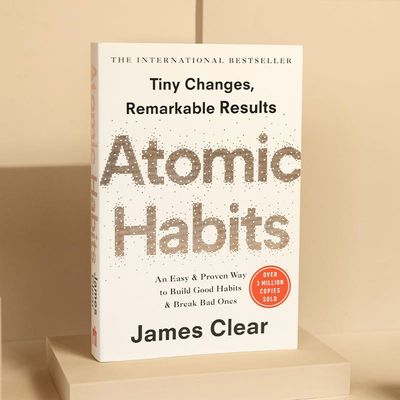Two popular books I have read recently, and highly recommend, are James Clear’s Atomic Habits and Adam Grant’s Think Again. They have led me to reflect on how we support young people at Cornerstone with some of their key ideas.
Atomic Habits offers a roadmap for making profound and lasting changes in our lives by introducing the concept of ‘atomic’ or tiny habits: The small, incremental changes that can lead to significant improvements. How can we help our young people turn ambitious and ambiguous goals into manageable, daily habits? Whether it's committing to reading or practicing an instrument or a sport each day, or setting aside 10 minutes for a family discussion, these tiny habits can accumulate over time to create substantial positive changes.


This year in staff meetings, College teachers have been focusing on aligning our habits in Cornerstone classrooms, and how we teach students great classroom habits which enhance behaviour, concentration and therefore learning.
One of the most valuable lessons from Atomic Habits is the importance of continuous improvement. It advocates for focusing on the process rather than the end result, encouraging us to embrace a growth mindset, which is essential for all students as they continue through the challenge of being a lifelong learner. Embracing the journey of becoming better versions of ourselves can lead to success in academics, personal relationships, and life as a whole.
Ideas from Think Again can help our students embrace a fresh or enlivened perspective as they maintain motivation through this final term. As Term 4 unfolds, it's a great time for our Home Groups and families to reflect with our students on their progress, goals, and reignite motivation. Think Again embraces intellectual humility, which is the willingness to admit when we're wrong and show eagerness to learn from others.
We encourage our students to be brave and ask questions in classes, to humbly and inquiringly approach their learning. For our young people, being open to different perspectives and admitting when they don't know something can lead to richer, more well-rounded education. In family and wider-College settings, it promotes healthy discussions and fosters a culture of learning from one another.
Grant's book emphasises the importance of reimagining, where reviewing goals and rethinking assumptions, perhaps about a relationship or a particular task that a student may be struggling with, can help our young people find new pathways through challenges. Think Again champions resilience and adaptability as essential qualities in the face of tricky situations. For students, this means understanding that setbacks are part of the learning process and that adapting to new circumstances is a strength.
I love how these authors describe many ideas which are fundamental to education, and promote continuous learning, critical thinking and adaptability, and motivate us to focus on the overwhelming benefit, but also simplicity, of small habits.
I continue to pray for our students and their families; may Term 4 bring many laughs, lightbulb moments, strengthened relationships and growth for all of our young people.
Morgan Brookes
Wellbeing Director
